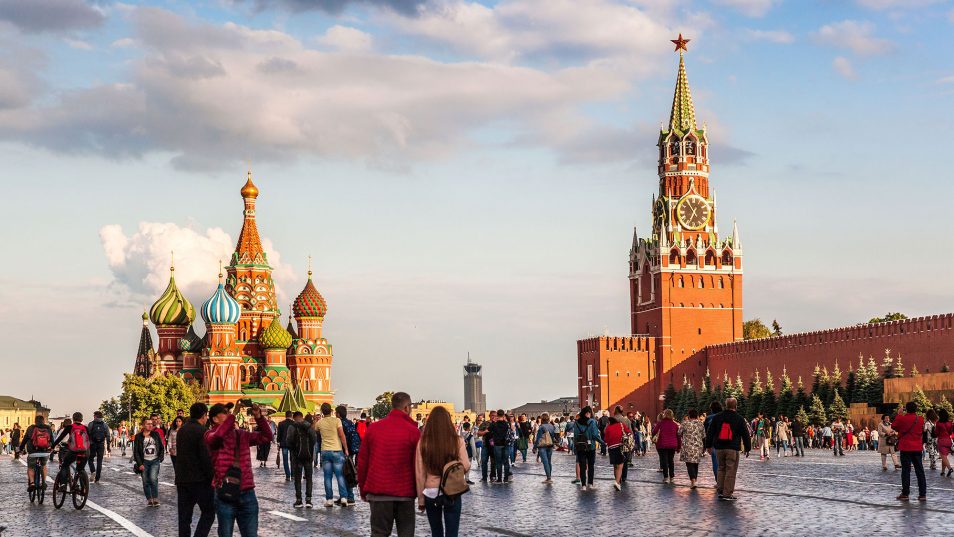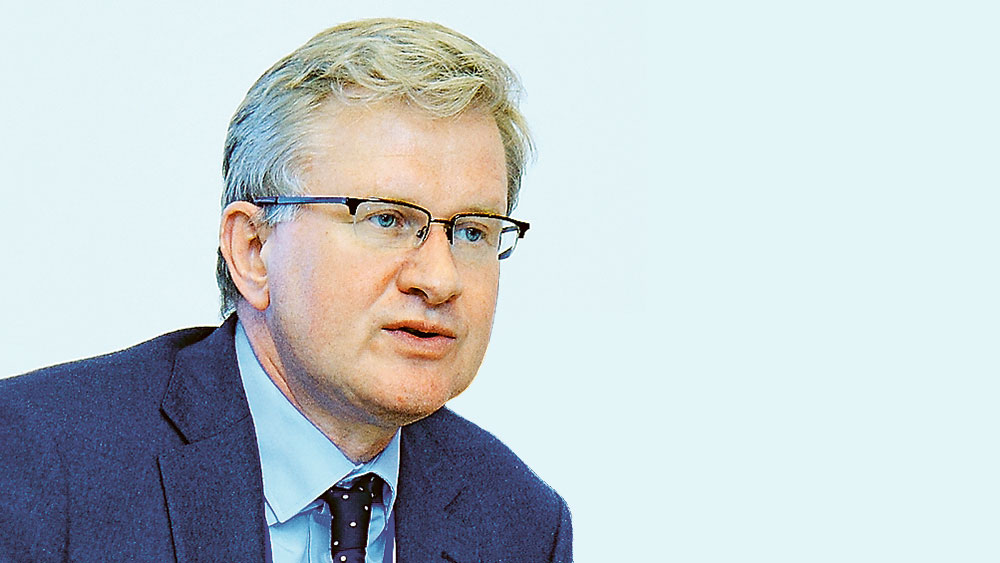DWIH Moscow: a key point of contact, even in times of war
 © picture alliance/pressefoto_korb
© picture alliance/pressefoto_korb When the Russian attack on Ukraine started in February 2022, DWIH Moscow put an end to all cooperation with Russian institutions. Nonetheless, it continues to do important networking on the ground.
At the end of November 2021, a few months before the start of the Russian war of aggression against Ukraine, DWIH Moscow organised a major two-day congress on the subject of “Sustainable Mobility and Urban Planning”. “I still have vivid memories of the event,” says Dr Andreas Hoeschen, Director of DWIH Moscow. “It was the second German-Russian Science Forum that year and the first which we were able to hold on an entirely in-person basis again since the outbreak of the coronavirus pandemic.”
Researchers from the two countries came together to talk about concrete solutions to combat climate change. As every year since it was first established in 2009, the DWIH managed to bring in important actors from both Russia and Germany and initiate collaborative ventures. “For us it was another example of successful German-Russian cooperation. It was great to see people obviously pulling together on climate action and wanting to learn from each other,” says Hoeschen.
An end to institutional cooperation
For the head of DWIH Moscow it’s important to be able to look back on events such as this – precisely because things changed so drastically after 24 February 2022, of course. Like all other German science organisations, the DAAD put an end to cooperation with Russia at the institutional level after this date, so DWIH Moscow likewise stopped pursuing its primary activity, namely initiating institutional cooperation. From its network of supporting organisations, only the German Historical Institute still maintains an office in Russia: all others now operate from Germany. DWIH Moscow continues to organise regular network meetings. “These are particularly important under the current conditions: after all, dialogue with the academic community in Russia has been significantly reduced for supporters, too. The ability to share the knowledge available and jointly assess the situation in the country has taken on a whole new significance,” says Andreas Hoeschen.

As Hoeschen is keen to emphasise, DWIH Moscow also contributes to this through its individual contact work on the ground: “There’s still a great deal of interest on the part of individual Russian researchers in making contact with us locally – and DAAD funding is still available to them to continue their research in Germany. We should definitely give them this opportunity.” In the field of climate action there is now such a close network of interdisciplinary contacts in Russian science that, according to Hoeschen, facilitating dialogue at the individual level is entirely appropriate and indeed wise.
In addition to the area of mobility and urban development, Arctic research has also been a key German-Russian field of cooperation in recent years, with considerable potential for joint innovation. One event during the German Week in St. Petersburg in April 2021 was an exchange of ideas between Russian and German researchers (photo above) who took part in the largest scientific Arctic expedition to date, namely MOSAiC (Multidisciplinary drifting Observatory for the Study of Arctic Climate). To this day, the expedition is considered a milestone not only in climate research but also in terms of international research cooperation. “While we’re not able to enter into any concrete collaborations just now, climate action will clearly be one of the key focus areas of joint interdisciplinary cooperation as soon as the conditions are right again.”
Willingness to engage in individual contact work
With its willingness to engage in individual contact work in civil society, DWIH Moscow is making an important contribution with a view to a future when it might be possible at some point to resume institutional academic cooperation between Germany and Russia once again. “I don’t even try and speculate about when a renewed rapprochement might be possible at the science policy level and what the concrete conditions will be,” says Hoeschen. “But there’s one thing we can say right now: it’ll only be possible to pick up from where we left off if we maintain contact with the people involved – the individuals who are interested in genuine dialogue.”
Klaus Lüber
